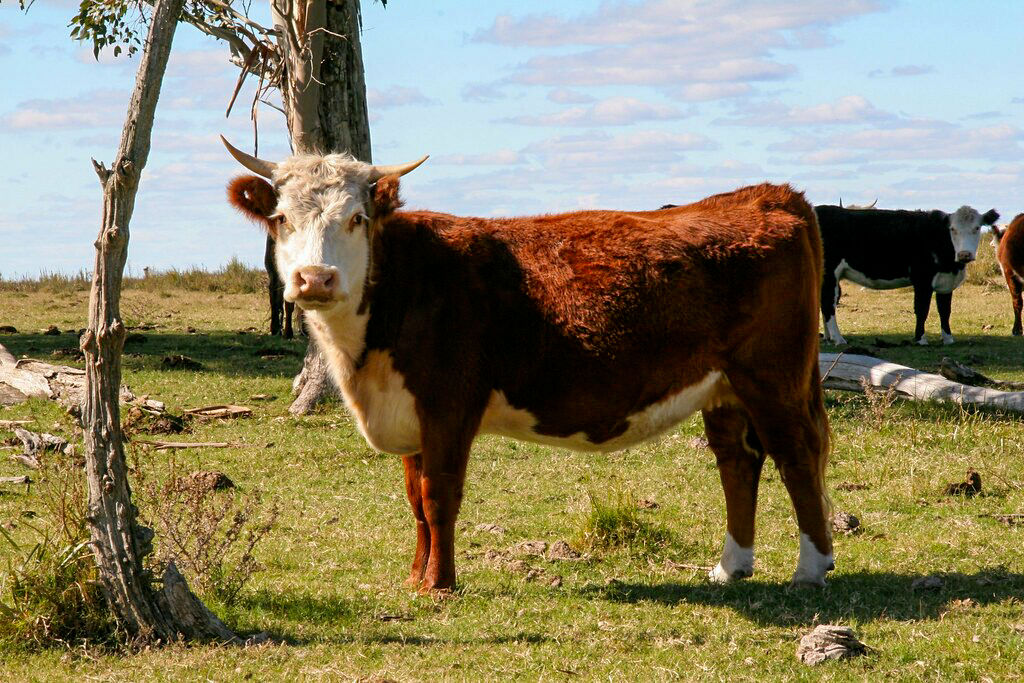Sometimes science tells us exactly what we want to hear. We read an article extolling the virtues of coffee and pump the air in triumph as we brew a fresh cup. Other times, science is a cruel teacher, telling us what we’re doing is wrong and we should be ashamed of sneaking that bag of chips in class.
Even though we might know something’s bad for us we tend to follow our desires more than our logical minds. Why else would people stay up all night playing video games with class in the morning, or rock out at an EDM show when they know it’s going to hurt their hearing eventually? Sometimes we do those things because we tell ourselves that we’re the only ones getting hurt, and we should have the freedom to make those decisions of our own accord. That makes it all the more complicated when we find out that something we love isn’t just bad for us, but bad for everyone, everywhere. How are we supposed to react when told that something as quintessentially Texan as a medium-rare steak or a grilled hamburger is fundamentally destructive to eat?
As the world turns its attention to the impacts of climate change, we are starting to consider the impact industrialized beef production has on the earth itself. Simply put, red meat is, by a large margin, the most economically inefficient form of food production on earth.
Compared to all other major animal products such as chicken, fish, eggs and dairy, beef has the lowest feed conversion efficiency of them all, at around 3%. Study after study shows that the land, energy, and feed required to produce one pound of beef far exceeds the comparative resources required by other sources of food. Alternative sources of meat such as fish and chicken are not only less damaging to the environment, but they also have a superior nutritional content as well. This is all to say that we do not have to collectively give up meat consumption in order to save our planet, only that we should explore the alternatives available to us now.
Here are some points to consider when learning about this issue. First of all, it’s important to know that agricultural production is not the leading cause of climate change. That title goes to global energy production at over 60 percent. All of agriculture as a whole, animal products included, accounts for about 13 percent of greenhouse gas emissions. However, the production of beef in particular is uniquely damaging to the environment, due to the large quantities of pasture land required to graze cattle. This often requires the large-scale destruction of forests serving as carbon sinks around the world.
Another important point to consider is America’s responsibility to lead on this issue. So many people when confronted with the science of meat production use the excuse that, “We shouldn’t be required to give up meat when it will barely make an impact in the scheme of things.” But in this instance, taking that individual action actually does make an important impact, because Americans are the world leaders in beef consumption, driving global demand. As other nations grow wealthier, they tend to increase their per capita beef consumption, influenced by the tastes established by you and I. Like the relatively recent transformation of lobster from garbage food to high-class delicacy, the changing of culinary taste is a surprisingly quick and fickle thing. One day red meat might be seen as the same kind of over-the-top luxury as caviar is today, and you can rest easy knowing that you lived in the generation when hamburgers and fajitas were shocking commonplace staples of the American diet.
Here’s some good news to soften the blow you might be feeling right now. Animal products such as eggs, dairy and cheese are surprisingly efficient and good alternatives for getting your calories and protein. Any bodybuilder will proclaim the value of fresh eggs in the morning, as they provide all the protein any non-superhuman needs to power a good workout. Of course, all of those options are vastly dwarfed by the efficiency of crops like corn and soybeans, which comprise the feed used to produce animal products in the first place, such as corn and soybeans. So if you can’t stomach the pain of cutting back on so much good food, consider making vegetables, legumes, eggs and dairy a larger part of your diet, in lieu of the weekly hamburger or steak. You’ll feel better for it, not just morally but physically as well.
There are so many good reasons to cut back on red meat that this goal shouldn’t be a hard one, but to some the very suggestion of doing so reads as a personal attack of the highest order. Eating meat is part of our very culture, and it’s something that will not stop within a generation. This is why we should start by improving in small steps the way we eat meat, through science, understanding, and conscientious consumption. In time we’ll be able to reduce our impact on the environment to a level that allows each of us to enjoy ourselves at dinner without guilt. And then we can occasionally enjoy the traditional cuisines of our forefathers, with a better appreciation for the cost involved.
Steak and the greater good: Confronting the harsh realities of beef production
November 3, 2019
Photo by Creative Commons
Beef has the lowest feed conversion efficiency coming in around 3% compared to other animal products such as chicken, fish, eggs and dairy.
Donate to The Battalion
Your donation will support the student journalists of Texas A&M University - College Station. Your contribution will allow us to purchase equipment and cover our annual website hosting costs.





















